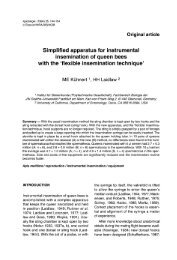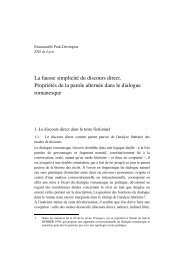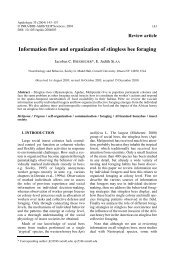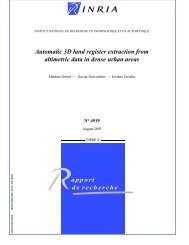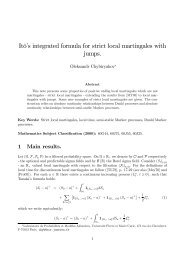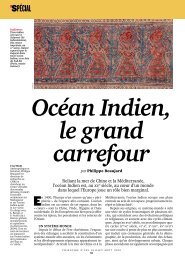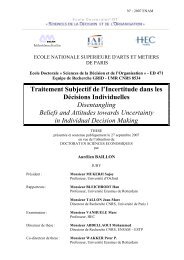Itineraries of Palestinian refugees: Kinship as resource in emigration.
Itineraries of Palestinian refugees: Kinship as resource in emigration.
Itineraries of Palestinian refugees: Kinship as resource in emigration.
Create successful ePaper yourself
Turn your PDF publications into a flip-book with our unique Google optimized e-Paper software.
halshs-00342285, version 1 - 28 Nov 2008<br />
C<strong>as</strong>e study #3: Emigration and family reunification<br />
<strong>K<strong>in</strong>ship</strong> migratory networks also became a very significant <strong>resource</strong> for migrants<br />
who today want to obta<strong>in</strong> legal residency <strong>in</strong> Europe, for family reunification is one <strong>of</strong> the<br />
e<strong>as</strong>iest ways to settle <strong>in</strong> Europe. Certa<strong>in</strong> <strong>Palest<strong>in</strong>ian</strong>s, who settled <strong>in</strong> Europe <strong>in</strong> the 1960s,<br />
but more especially dur<strong>in</strong>g the 1970s, founded families <strong>in</strong> their host countries. Most <strong>of</strong><br />
the parents I met preferred that their daughters married Muslims, and preferably<br />
<strong>Palest<strong>in</strong>ian</strong>s from the same camp or settlement <strong>in</strong> Lebanon. This k<strong>in</strong>d <strong>of</strong> marriage is<br />
facilitated by the fact that daughters carry German, Swedish, or Danish p<strong>as</strong>sports. Dur<strong>in</strong>g<br />
a summer visit to Lebanon they marry and their husband returns with them to settle <strong>in</strong><br />
Europe.<br />
Jalal is a young refugee born <strong>in</strong> the beg<strong>in</strong>n<strong>in</strong>g <strong>of</strong> the 1970s <strong>in</strong> a camp <strong>in</strong> the Tyre<br />
region. Because <strong>of</strong> the situation <strong>in</strong> Lebanon he w<strong>as</strong> th<strong>in</strong>k<strong>in</strong>g <strong>of</strong> emigrat<strong>in</strong>g. His uncle,<br />
who had settled <strong>in</strong> Germany <strong>in</strong> the early 1960s, had a daughter born there, with German<br />
citizenship. In the summer <strong>of</strong> 1994, they came back to Lebanon and Jalal decided to<br />
marry her. She returned to Germany and arranged all the documents for him under the<br />
family reunification procedure. He obta<strong>in</strong>ed a one-year residency permit and found<br />
employment <strong>in</strong> the construction sector <strong>in</strong> Berl<strong>in</strong>. His experience, however, w<strong>as</strong> not a<br />
happy one. His wife left him and took their daughter with her. He could not renew his<br />
residence permit, and <strong>in</strong> March 1999, he had to leave Germany and return to Lebanon.<br />
This shows the legal precariousness <strong>of</strong> the newcomers. He appealed the decision not to<br />
renew his residency permit, argu<strong>in</strong>g that his daughter held German citizenship and w<strong>as</strong><br />
still liv<strong>in</strong>g <strong>in</strong> Germany. He managed to obta<strong>in</strong> a new residency permit and went back to<br />
Germany a few months later.<br />
It should be noted that the local effects <strong>of</strong> <strong>emigration</strong> through this channel on the<br />
country <strong>of</strong> departure are significant: family structures are deeply modified by <strong>emigration</strong><br />
<strong>in</strong>cre<strong>as</strong><strong>in</strong>g gender <strong>in</strong>equalities <strong>in</strong> poor <strong>Palest<strong>in</strong>ian</strong> are<strong>as</strong>. Emigrants are <strong>of</strong>ten young men.<br />
Therefore, <strong>in</strong> South Lebanon there are more young women then men <strong>of</strong> marriageable age.<br />
15


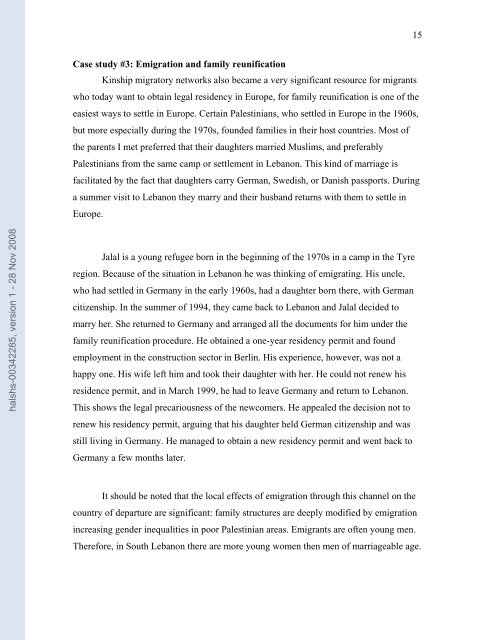
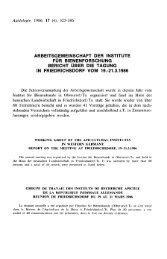
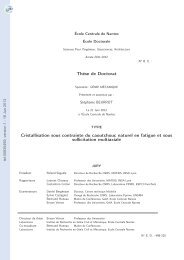
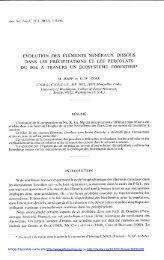
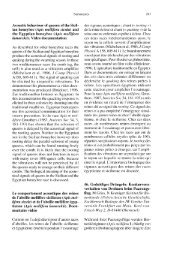
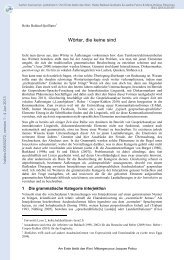
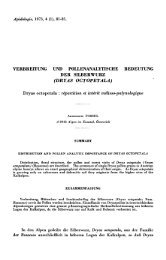
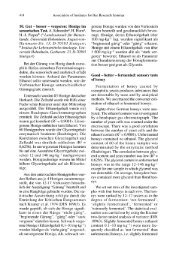
![4 C]-Polyethylenglykol bestimmt, der - HAL - INRIA](https://img.yumpu.com/22454280/1/177x260/4-c-polyethylenglykol-bestimmt-der-hal-inria.jpg?quality=85)
